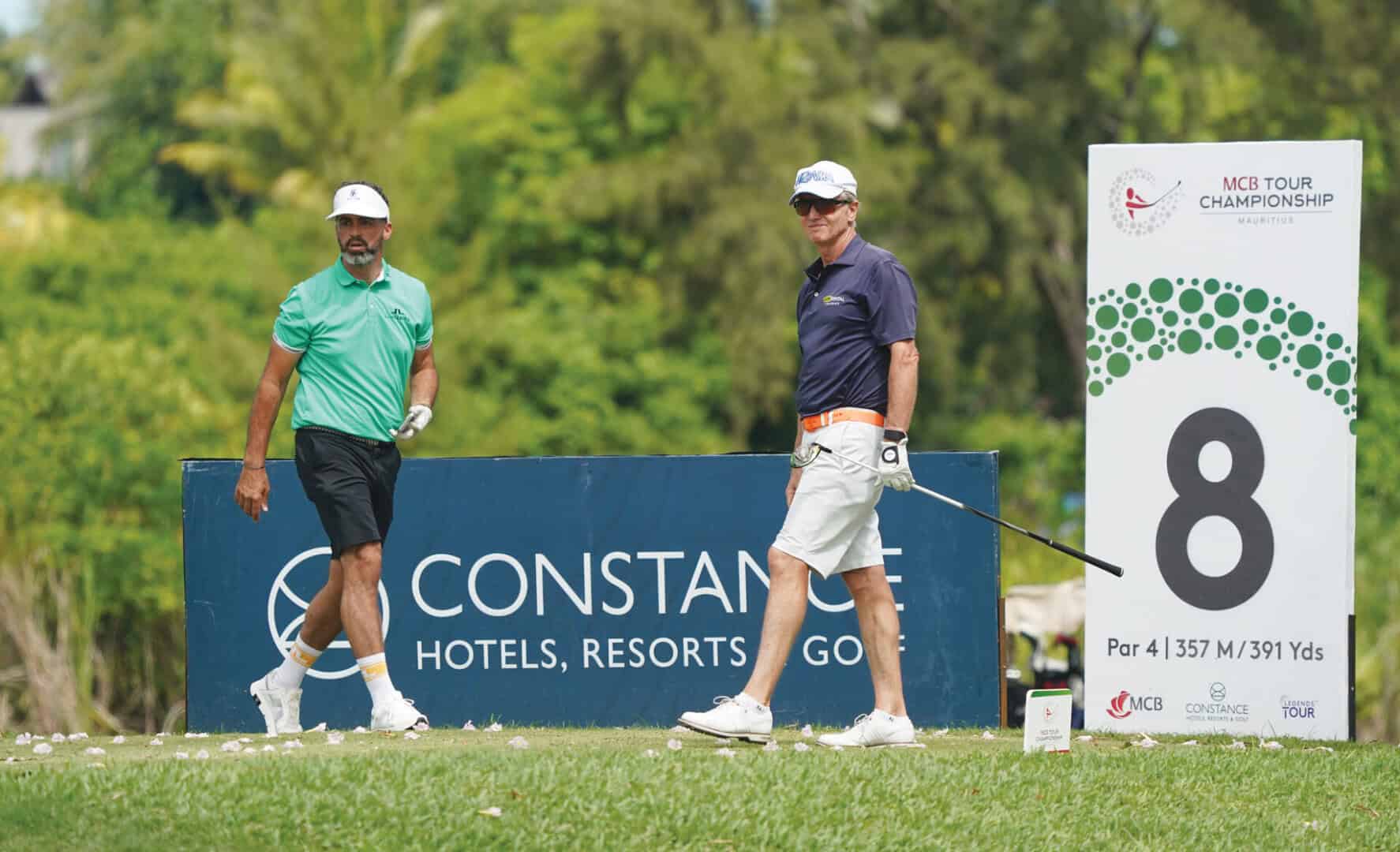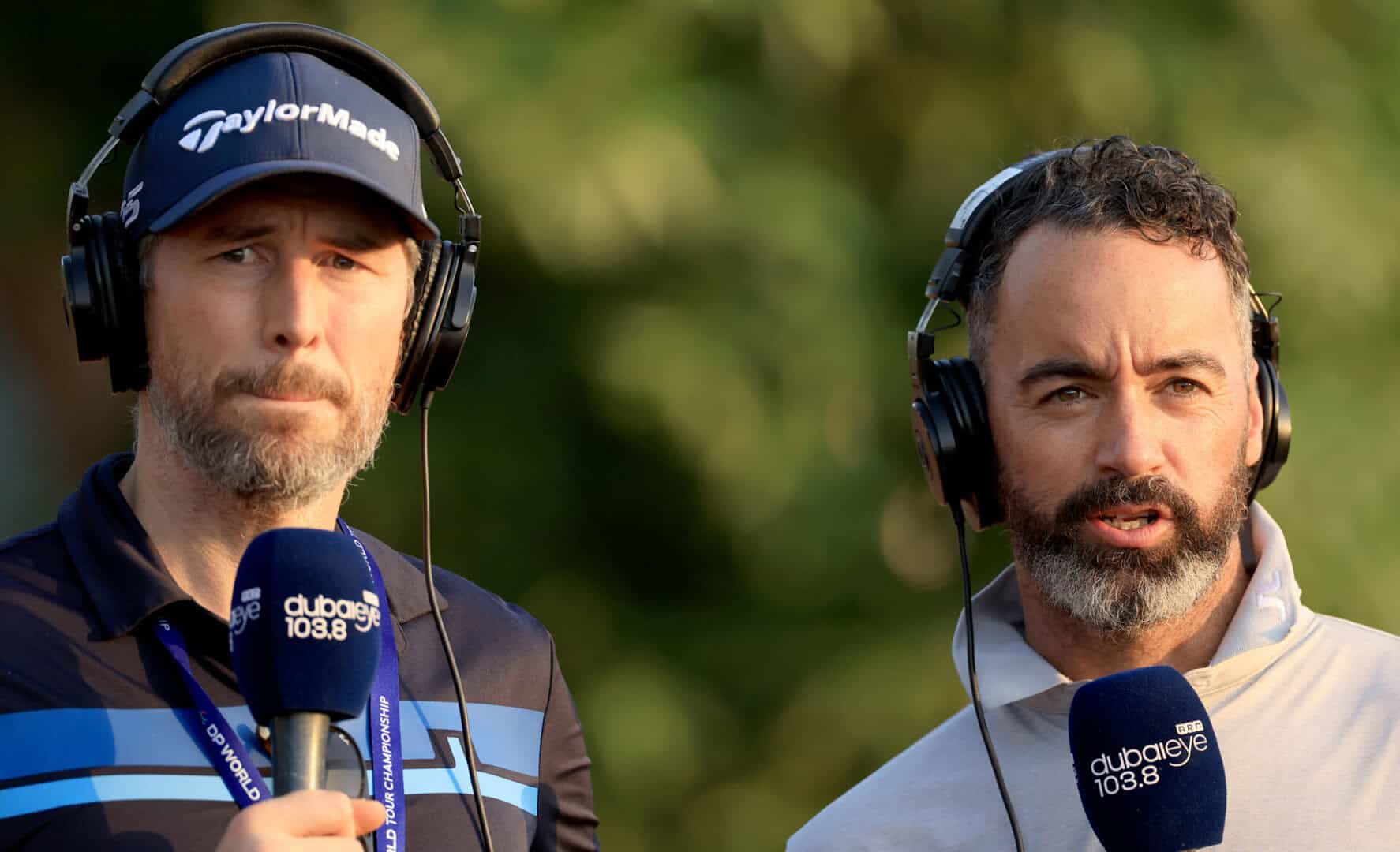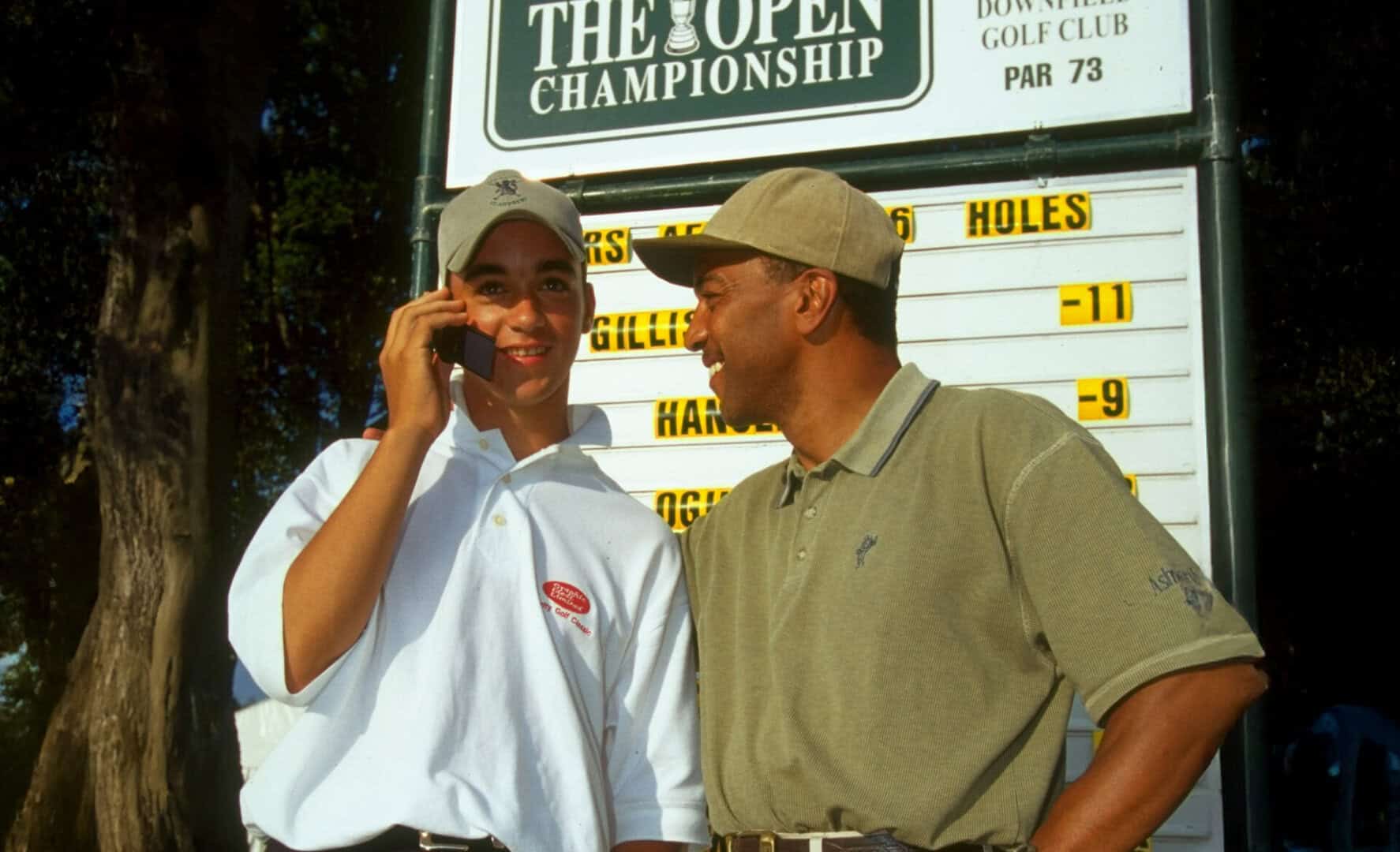Zane Scotland’s trajectory in golf was never straightforward. He only picked up the game at 11, yet within five years he was standing on the range at Carnoustie next to Tiger Woods and Greg Norman for The Open Championship – the youngest player ever to qualify at just 16. His rise to the top of the golfing stratosphere looked to be written in the stars but fate dealt him the cruellest of blows when a serious car crash in 2003 left him with neck injuries and consigned him to months of enforced lay-offs.
He battled back to forge a career that took him onto the DP World Tour and, most memorably, into the history books of the MENA Golf Tour. With 10 titles to his name, the Dubai-resident remains the most decorated player in the Tour’s history.

“It was really nice to get that recognition,” says Scotland. “The Tour gave me a platform when I was coming back from injury. Playing courses in the UAE that were set up like Tour venues meant I could just focus on my golf.”
That early Open appearance, at such a young age, would’ve been enough to have most mere golfing mortals shaking in their shoes. But it didn’t feel like that for the up-and-coming prodigy. “I was on the range next to Tiger Woods, Greg Norman, Darren Clarke – all the names I’d only watched on TV,” he says. “But at that age, I just took it in my stride. I thought, ‘this is normal.’ It’s only now, looking back 25 years later, that I realise what a big deal it was.”
His amateur career blossomed from there, representing England and Great Britain & Ireland, and signing with IMG – earmarked for the same fast-track to the top that contemporaries like Sergio Garcia, Paul Casey and Graeme McDowell had enjoyed. Then came the crash. “I woke up one morning after a tournament and I couldn’t even lift my head off the pillow,” he recalls. “It felt like a knife in my neck. From that point I spent years in and out, playing a few events, breaking down again, taking more months off. You can’t get momentum at this level if you’re always injured.”

By 2006 he had finally found the treatment that allowed him to play pain-free again, and in 2007 he showed his class, posting top finishes on DP World Tour and even finding himself in the last group on Sunday at the Deutsche Bank Open. “That year was a purple patch,” he says. “I felt like I belonged. But then injuries kept coming – a fractured wrist, more back issues – and I could never get that consistency.”
By the time the inaugural MENA Golf Tour teed off in 2011, Scotland’s career was at a crossroads. “I’d qualified for The Open again in 2010, which gave me a bit of a lift,” he says. “But really, I didn’t have anywhere to play. Then I heard about this new tour starting up in the UAE with four events. It was perfect timing. It gave me a reason to keep going.”
He thrived in the new environment. Used to Tour-standard setups, Scotland found the UAE courses familiar, and with his pedigree he quickly became the benchmark. “Once I won two or three, I knew the formula. I had a season where I won five out of eight starts. Everything I did just seemed to fall the right way. Golf’s a game of small margins, and for six months every bounce seemed to go my way.”
Aside from his own achievements, he saw what the Tour could mean for others. “The MENA Golf Tour isn’t just about scoring. It’s about teaching players what life on tour is actually like – organising travel, finding the right hotels, preparing properly, handling nerves, learning how to win. That experience is invaluable. You can’t get it on the range with a TrackMan.”
Now, more than a decade later, the Tour is being reborn with fresh investment and a new management team headed by Chairman and Commissioner Keith Waters, General Manager Richard Rayment and key investor Donna Benton. For Scotland, who has lived in Dubai for several years, it’s a development he welcomes wholeheartedly.
“This is big for golf in the region because it’s no longer just about the big international championships that come here once a year,” he says. “This is the region’s tour – a homegrown platform where local players can get those experiences week in, week out. And with guaranteed prize funds, better setups, and even things like players being paid within 48 hours, it’s raising the bar massively.”
He points out that for players at this level, small details can make or break careers. “On the PGA Tour or DP World Tour, waiting two weeks for your prize money isn’t a big deal. At this level, a thousand dollars might pay for your next three events. If you get paid in 48 hours, that’s huge. It keeps players in the game, it lets them plan properly. And Donna’s idea to guarantee that is a real game-changer.”

The revamped Tour will stage Qualifying School in Portugal in November, followed by two events before Christmas and then a condensed run of 10–12 tournaments through March.
“That’s really important as it helps players to plan,” Scotland explains. “You can map out your season, manage your finances, and actually focus on improving. At this level, that’s worth millions.”
He also sees the condensed season format as more fan-friendly. “It creates a proper season, like other sports. You can follow the story. That’s good for players, but also for fans, sponsors, and the media.”
And crucially, he believes it will become a genuine pathway. “If you think about other regions, they all have their own development tours. The MENA region never really had one. Now it does. If you’re a talented young player here, you don’t have to go to the US or Europe to try your luck straight away. You can play at home, learn the ropes, and build towards the HotelPlanner Tour or DP World Tour.”
Scotland is keen to stress that the MENA Golf Tour should be seen as a stepping stone, not an end point. “Not everyone’s going to be Rory McIlroy,” he says. “For 99 percent of players, the journey from amateur to pro takes four or five years. This Tour gives them a place to play, to make mistakes, to learn. If they treat it as a two- or three-year education, they’ll come out of it ready for the next step.

“Your first time at Q-School, you might not be good enough. That doesn’t mean give up. You come back the next year stronger, knowing what to expect. The MENA Tour prepares you for that – the small details, the ups and downs, the grind. You need those lessons before you face the big leagues.”
While his full-time Tour days are behind him, Scotland hasn’t lost his competitive edge. Thanks to his lifetime membership of the MENA Tour, earned through his record-setting achievements, he plans to tee it up when the Tour resumes.
“I think I’ll play one of the early ones in Portugal,” he smiles. “It’s great to see the Tour back – and to still be a part of it.”
Even now, at 43, he’s still motivated to squeeze the most out of his game. “If I really go after it, I can still swing it at 120 miles an hour. That won’t last forever, so I might as well make the most of it while I can.”
For Scotland, the new MENA Golf Tour is more than just another chapter in his own career. It’s a chance to give the next generation of regional players the platform he once needed so badly. “When I came here, the Tour gave me the reason to keep going. Now it can do that for hundreds of others. That’s why this relaunch matters.”